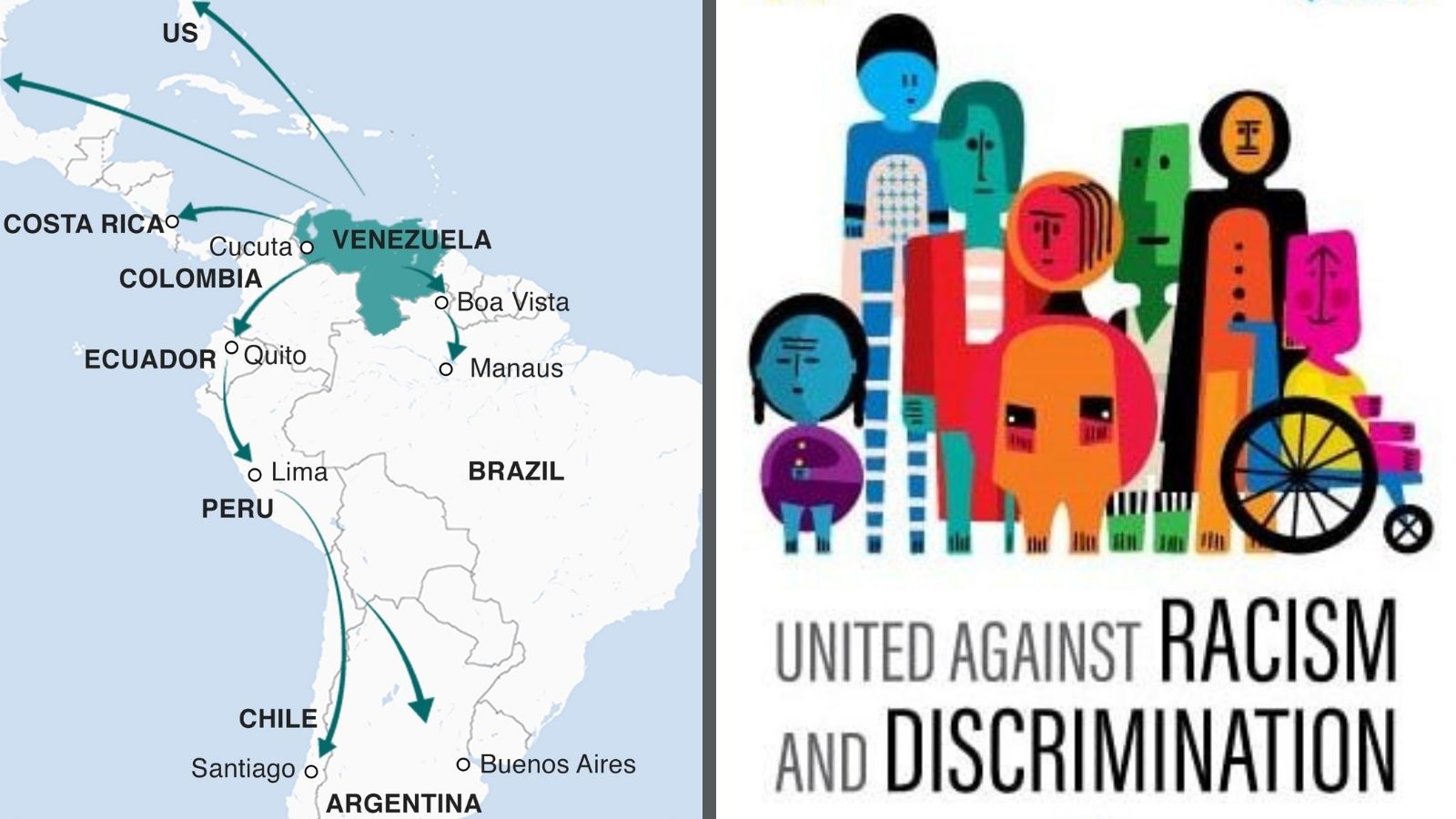MPA Program at CCNY and Ariel Montrose

Ariel Montrose (MPA '22) is an administrative professional with a background in global studies and a passion for amplifying marginalized people’s voices through storytelling. With deep family ties to both Trinidad and Venezuela, Montrose has been troubled by the increase in anti-Venezuelan sentiment in Trinidad amid the influx of Venezuelan migrants driven by economic crisis. This motivated her to apply to the MPA Changemaker Fellowship and create a podcast in collaboration with a grassroots organization in Trinidad to raise awareness about xenophobia and give migrant youth an outlet to tell their stories. She hopes the podcast will fuel national advocacy on the issue. Montrose discusses the project in this interview.
What is the primary goal of your project?
My project uses storytelling to bring awareness to the problems that Venezuelan migrants experience in Trinidad and Tobago. I believe that having Venezuelan migrants narrate their own story brings more power than having someone else tell it.
What motivated you to work on this project?
I have roots in both countries. My parents are Trinidadian; my mother migrated to Brooklyn before I was born. I lived in Trinidad for several years as a child. On my mother's side, my Grandfather is of Venezuelan descent, and my father’s family is also Venezuelan.
The two countries have deep historical ties. In Trinidad, we call people of Venezuelan descent a cocoa panyol – a term speaking to the historical ties of Venezuelans migrating to Trinidad and working within the cocoa fields. Much of Trinidadian culture also connects us to Venezuela, such as our Christmas music called Parang.
Since the Venezuelan economic crisis, I have noticed a substantial shift in Trinidadians' view of Venezuela, which has only worsened over time. Watching the change happen before my eyes, I felt like I had to do something.
What has been the most memorable part of this experience as a Changemaker Fellow?
Everyone in the podcast took part in every step, such as picking the topics and spreading the word to everyone they knew. Building up to recording the podcast, I focused a lot on ensuring comfort in sharing stories and establishing trust. Listening to everyone discuss their experiences but also taking part in the podcast and growing passionate about it was the most impactful part of this project.
How would you like to scale this project to reach more people?
I would love to see this awareness campaign grow nationally. I think bringing awareness nationally can increase advocacy for helping Venezuelan migrants. We cannot underestimate the power of the people and public opinion. By bringing attention to the problem and Venezuelans' experiences especially since COVID, we can pressure the Trinidadian government to establish better policies to ensure Venezuelans have a status within Trinidad. Giving them a status can be the first step in Venezuelans receiving more opportunities within Trinidad.
How can people support your work?
Keep up on my LinkedIn and tune in to the podcast once it has been released. Also, look into the work of the Living Water Community in Trinidad and support them, especially regarding their work with the Venezuelan IDPs (Internally Displaced Persons).
Ariel Montrose created this project with support from the MPA Changemaker Fellowship, a program that supports MPA students who propose a project that will apply the skillsets they are learning in the program to a community issue while advancing their own professional development. Find out more.